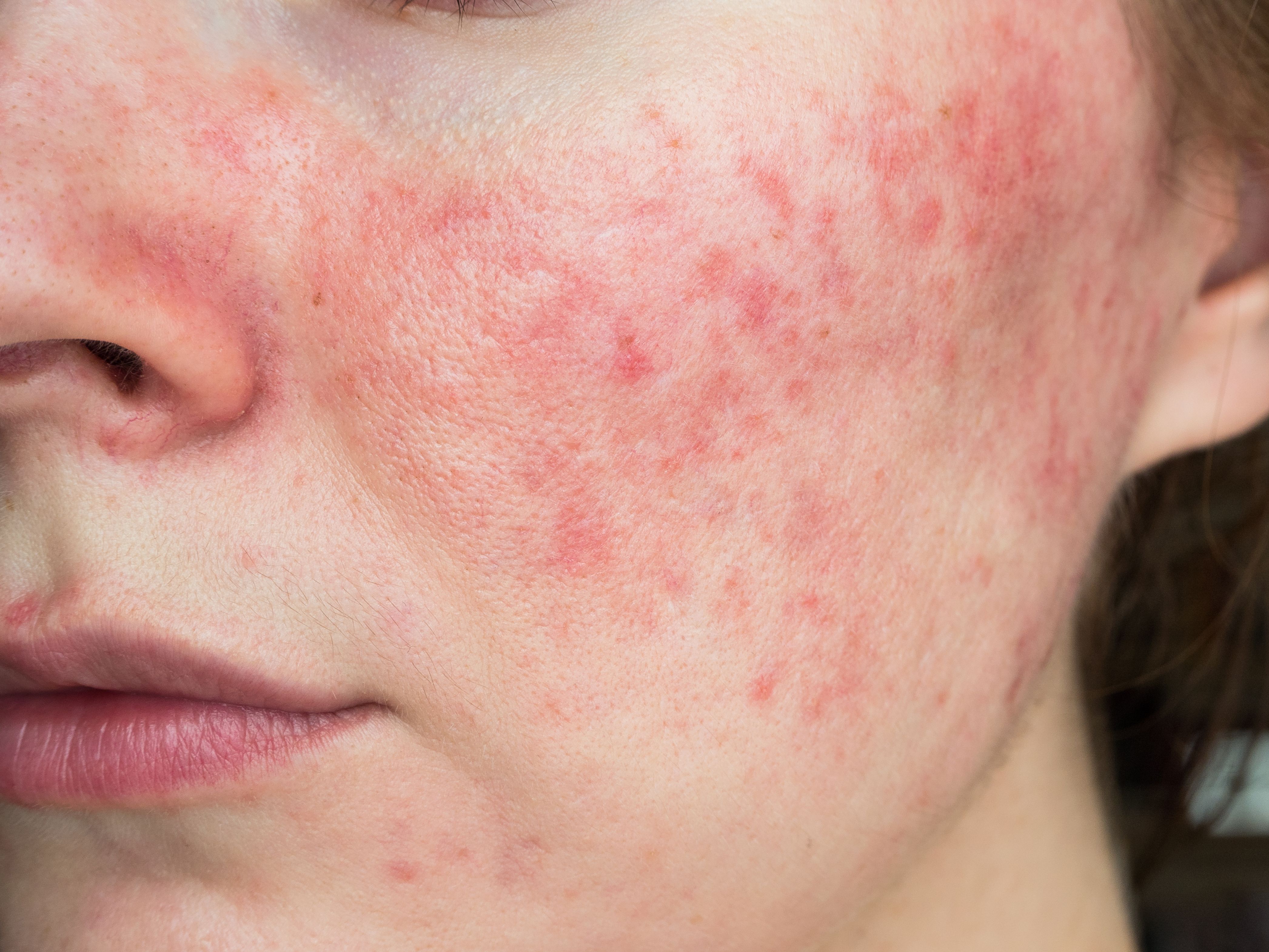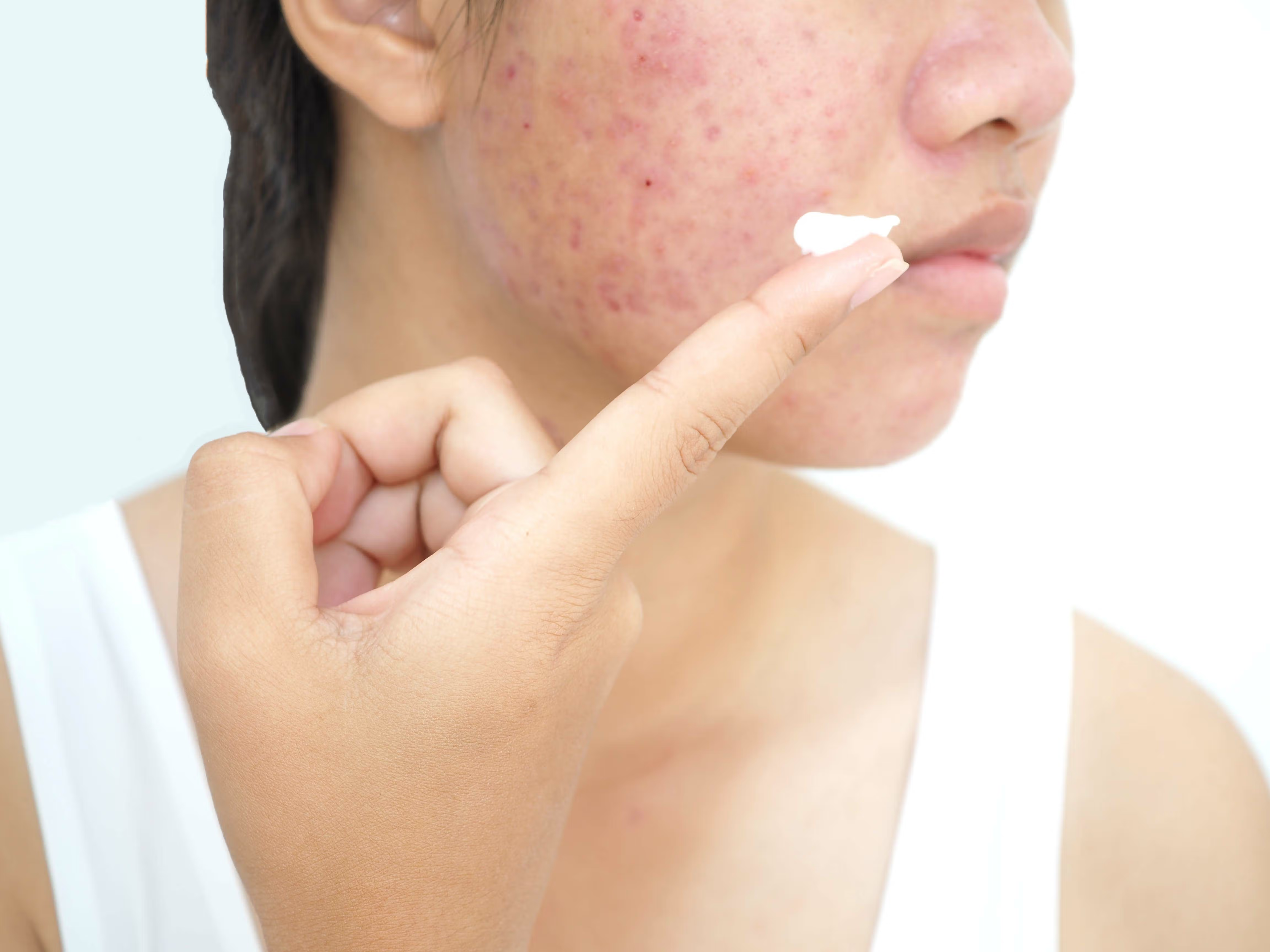- Acne
- Actinic Keratosis
- Aesthetics
- Alopecia
- Atopic Dermatitis
- Buy-and-Bill
- COVID-19
- Case-Based Roundtable
- Chronic Hand Eczema
- Drug Watch
- Eczema
- General Dermatology
- Hidradenitis Suppurativa
- Melasma
- NP and PA
- Pediatric Dermatology
- Pigmentary Disorders
- Practice Management
- Precision Medicine and Biologics
- Prurigo Nodularis
- Psoriasis
- Psoriatic Arthritis
- Rare Disease
- Rosacea
- Skin Cancer
- Vitiligo
- Wound Care
News
Article
Dermatology Times
Patients, Providers Seek Therapeutic Alternatives to Benzoyl Peroxide
Some patients may be looking for alternatives to BPO, questioning its safety.
Image Credit: © a3701027 - stock.adobe.com

Benzoyl peroxide (BPO) has been considered the gold standard for the management of acne vulgaris for decades, having been approved for treating acne more than 60 years ago.1 Moreover, updated guidelines for acne management were published in the Journal of the American Academy of Dermatology in January of this year.2 The guidelines were updated following a systemic review, and experts made strong and conditional recommendations for various treatment modalities—of these, BPO received a strong stamp of approval.
In March, Valisure LLC, an independent testing laboratory, filed a citizen petition with the US Food and Drug Administration (FDA) requesting a recall of treatments affected by elevated levels of benzene and an investigation into these products.
Valisure tested 66 BPO acne products and found “benzene at high levels when BPO products were incubated at 37 °C (98.6 °F—body temperature), 50 °C (122 °F—accepted pharmaceutical stability testing temperature), and 70 °C (158 °F—hot car temperature).”3 Of the 66 products tested at day 0 at room temperature, 10 of the products had more than 10 parts per million (ppm) of benzene and 19 products had more than 2 ppm of benzene.
While this study and its methods have been lauded and criticized by clinicians, some patients may be looking for alternatives to BPO, questioning its safety. Pharmaceutical companies are taking notice.
In May, Lindus Health and Acinonyx Bio announced they will collaborate on a cosmetics clinical trial investigating Acinonyx Bio’s topical cream, ACX, for the treatment of inflammatory acne. The study will focus on Propionibacterium acnes, which plays a significant role in the development of inflammatory acne.4
Previous in vitro studies showed that ACX killed P acnes as rapidly as BPO. This trial will enroll patients with moderate to severe inflammatory acne and be conducted as a decentralized clinical trial, allowing patients the flexibility to participate within the comfort of their real-world environments. Patients will use the topical treatment for 6 weeks and provide photos for medical assessment as well as their opinions on the efficacy of ACX and their overall satisfaction. Positive results from this trial would further emphasize the potential of ACX as a novel topical cream for the treatment of patients with inflammatory acne.4
But what should clinicians tell their patients in the meantime?
Expert Recommendations for BPO Skepticism, Alternatives
Recommendations published in Pharmacist’s Letter suggest that clinicians should “be ready” to discuss alternatives with their patients in light ofValisure’s findings, and in light of pharmaceutical companies taking notice and action.
They recommend that clinicians await more evidence, and in the meantime, counsel patients on proper storage and discard procedures regarding temperature and expiration dates of BPO-containing products.5
When it comes to discussing alternatives, the following may be considered:
For most patients, a topical retinoid such as over-the-counter adapalene 0.1% or prescription tretinoin 0.025% is recommended. To minimize irritation, patients should ensure their skin is completely dry before application and start by using the retinoid 2 to 3 times a week. It is also important to advise the use of sunscreen, as retinoids can increase photosensitivity.5
For patients who cannot tolerate retinoids or prefer to avoid them, alternatives such as salicylic acid or azelaic acid can be effective. These can also be combined with retinoids for enhanced results if tolerated. Topical androgen receptor inhibitor clascoterone (Winlevi) should be reserved as a last resort due to its high cost and likely insurance rejections.5
Topical and oral antibiotics should not be used alone and are best combined with benzoyl peroxide to prevent resistance. For women with moderate to severe acne, combination oral contraceptives or spironolactone can be considered. Isotretinoin is an option for patients with severe cystic or nodular acne or less severe acne that causes scarring and does not respond to first-line treatments.5
“With Valisure’s agreement, for those providers and patients who wish to continue using benzoyl peroxide–containing products, a proportional response at this time would be to keep the product refrigerated at all times, renew the medicine every 3 to 6 months, and avoid heated storage,” said Christopher Bunick, MD, PhD, PhD, FAAD, an associate professor of dermatology and a physician-scientist at Yale School of Medicine in New Haven, Connecticut. “This will not necessarily eliminate all benzene but should slow its decomposition. This measure gives the medical community a chance to await further investigation and recommendations.”
References
- Baldwin H, Elewski B, Hougeir F, et al. Sixty years of benzoyl peroxide use in dermatology. J Drugs Dermatol. 2023;22(1):54-59. doi:10.36849/JDD.7150
- Reynolds RV, Yeung H, Cheng CE, et al. Guidelines of care for the management of acne vulgaris. J Am Acad Dermatol. 2024;90(5):1006.e1-1006.e30. doi:10.1016/j.jaad.2023.12.017
- Valisure discovers benzoyl peroxide acne treatment products are unstable and form benzene. News release. Valisure. March 6, 2024. Accessed June 10, 2024. https://www.valisure.com/valisure-newsroom/valisure-detects-benzene-in-benzoyl-peroxide
- Lindus Health announces cosmetics clinical trial with Acinonyx Bio to evaluate an alternative to benzoyl peroxide for inflammatory acne. News release. Lindus Health. May 16, 2024. Accessed June 10, 2024. https://www.prnewswire.com/news-releases/lindus-health-announces-cosmetics-clinical-trial-with-acinonyx-bio-to-evaluate-an-alternative-to-benzoyl-peroxide-for-inflammatory-acne-302146936.html
- Be ready to discuss alternatives to benzoyl peroxide. Pharmacist’s Letter. May 2024. Accessed June 10, 2024. https://pharmacist.therapeuticresearch.com/Content/Articles/PL/2024/May/Be-Ready-to-Discuss-Alternatives-to-Benzoyl-Peroxide























